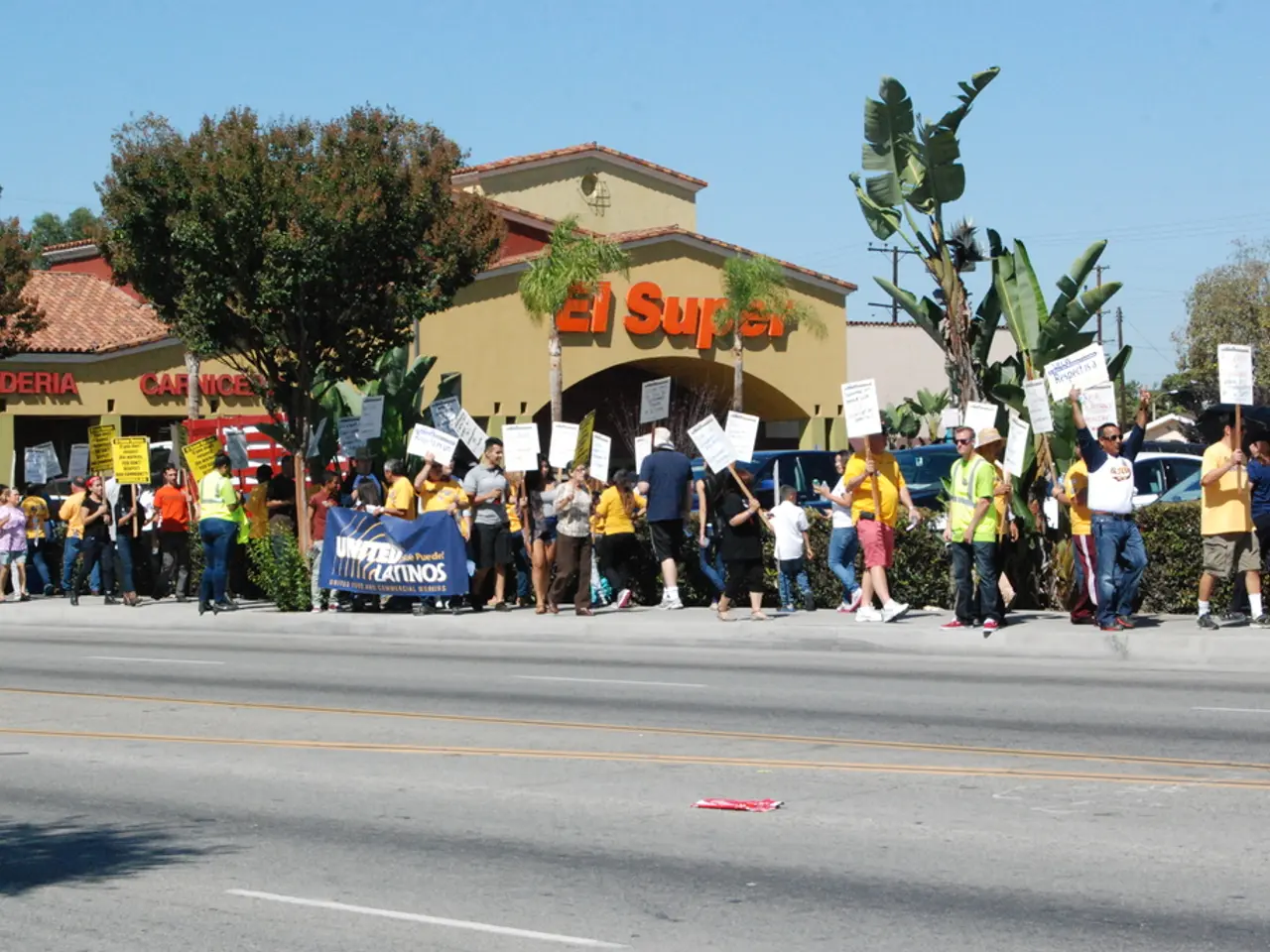Opinions in Germany Regarding Renewable Energy by 2030 Divided, According to Survey Results
Germany's commitment to its energy transition, aiming for 80% of its electricity to come from renewables by 2030, continues to garner support from a significant portion of the population. However, a recent poll commissioned by "Der Stern" and RTL Germany, conducted by the market and opinion research institute Forsa, reveals a divided public opinion on the matter.
The data, collected via telephone by the dts news agency on August 7 and 8, surveyed 1,003 respondents, yet no information about the response rate or margin of error was provided. The poll shows that 30% of respondents find Germany's reliance on renewable energy to be just right, while 34% think that the country is not relying enough. Interestingly, those who believe Germany is not relying enough enough are more common among younger demographics, particularly those under 30, as well as supporters of the Greens and the Left party.
On the other hand, 32% of respondents believe that Germany is relying too heavily on renewable energy. This sentiment is more common among East Germans and supporters of the Alternative for Germany (AfD) party.
The poll also highlights political divisions on the issue. While younger, urban, and environmentally conscious populations, as well as left-leaning parties like the Greens (Die Grünen) and Social Democrats (SPD), continue to support renewables, conservative parties such as the Christian Democratic Union (CDU/CSU) and the Free Democratic Party (FDP) have shown some openness to nuclear energy as a transitional measure and have voiced concerns over the current challenges in renewable output and energy reliability.
Older demographics and rural populations sometimes express greater concern over grid stability and energy costs, leading to debates about expanding gas power plants as backup capacity while renewable infrastructure scales up. Recent events, such as the significant drop in renewable energy output in 2025, have further fueled these concerns.
Industry and NGOs are warning that delays in government decisions on supporting new gas plants and renewable capacity risk undermining the green transition and competitiveness. The coalition government is under pressure to present clear policy measures to meet climate and renewable targets by 2030 and 2040 amid regional elections in 2026. Utility companies like EON have warned that Germany risks falling behind in clean energy shifts due to vague political commitments and regulatory hurdles.
In summary, while support for renewables is strongest among younger, urban voters and left-of-center parties, older, rural, and conservative voters/parties express cautious or conditional support, emphasizing system reliability and energy security. This distribution reflects Germany’s ongoing political negotiation over how to balance ambitious climate goals with practical energy needs.
- Despite industry and NGO warnings that delays in government decisions on supporting new gas plants and renewable capacity could risk undermining the green transition and competitiveness, older, rural, and conservative voters/parties express cautious or conditional support for renewable energy, emphasizing system reliability and energy security.
- Interestingly, those who believe Germany is not relying enough on renewable energy are more common among younger demographics, particularly those under 30, as well as supporters of the Greens and the Left party.
- A significant portion of the population continues to support Germany's commitment to its energy transition, aiming for 80% of its electricity to come from renewables by 2030, yet a divided public opinion on the matter is revealed in a recent poll, with 32% of respondents believing that Germany is relying too heavily on renewable energy.
- The poll also shows that 30% of respondents find Germany's reliance on renewable energy to be just right, and this sentiment is often shared by urban, younger, and environmentally conscious populations, as well as left-leaning parties like the Greens (Die Grünen) and Social Democrats (SPD).




